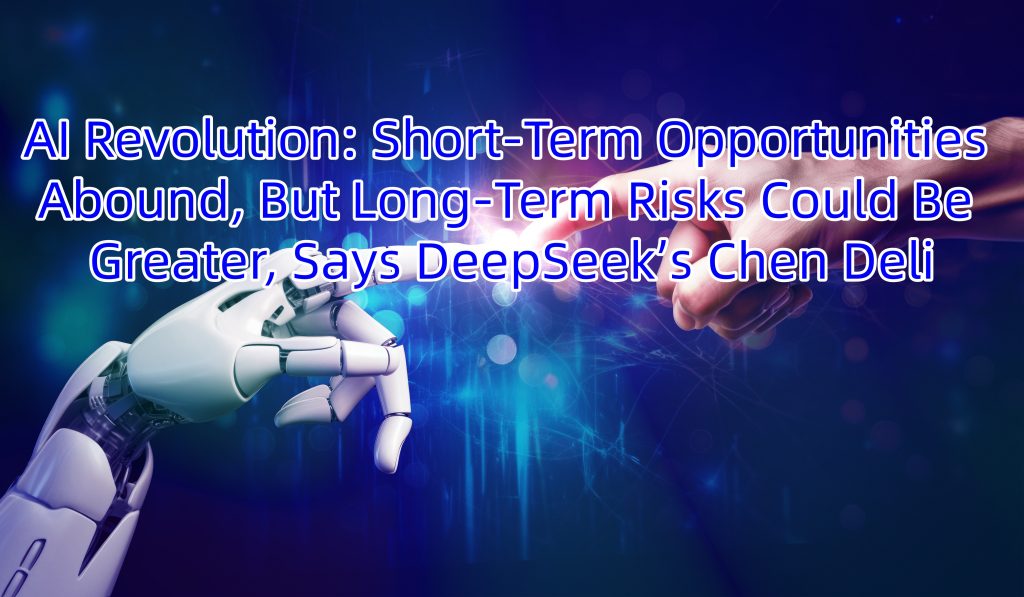Wuzhen, China – November 7, 2025 – At the main forum of the 2025 World Internet Conference Wuzhen Summit, Chen Deli, a senior researcher at DeepSeek, shared his insights on how artificial intelligence (AI) will transform human society. He stated that while AI development presents more opportunities in the short term, the risks could become more significant in the long run.
The forum featured a dialogue session titled “Wuzhen Dialogue of the Six Little Dragons,” where leaders from six prominent Hangzhou-based companies—Unitree Robotics, Qunhe Technology, BrainCo, Game Science, DeepSeek, and Yun Shen Chu Technology—shared the stage for the first time.
Short-Term Outlook: A “Honeymoon Phase” for Humans and AI
According to Chen Deli, in the short term, likely within the next 3-5 years, humans and AI may experience a “honeymoon phase.” During this period, AI will not be capable of independently completing many tasks, but people can leverage AI to enhance their capabilities and create value.
“Human capability combined with AI produces a ‘1+1>2’ effect,” Chen explained. “We can use AI to solve more complex problems and create greater value.”
Mid-Term Perspective: Rising Risks and Job Displacement
Looking ahead to the medium term, approximately 5-10 years, Chen anticipates that AI will begin replacing certain human jobs, leading to increased risks. During this phase, people might face significant unemployment challenges.
“At this stage, tech companies should act as whistleblowers,” Chen emphasized. “They need to provide risk warnings to the public and help raise awareness about these potential challenges.”
Long-Term Vision: Major Societal Shifts and the Role of Tech Companies
In the long term, spanning about 10-20 years, Chen predicts that AI could replace the vast majority of human jobs, posing substantial challenges to existing social structures. He advocates for technology companies to assume the role of “human guardians,” ensuring human safety and actively participating in the reshaping of social order.
“These views are not alarmist,” Chen stressed, highlighting a crucial distinction between the current AI revolution and historical industrial revolutions. While past innovations involved tools that enhanced human capabilities, humans remained the primary intelligent agents. In contrast, the AI revolution introduces systems that can themselves act as intelligent entities—potentially even surpassing human intelligence—which could have far more profound implications for society.

